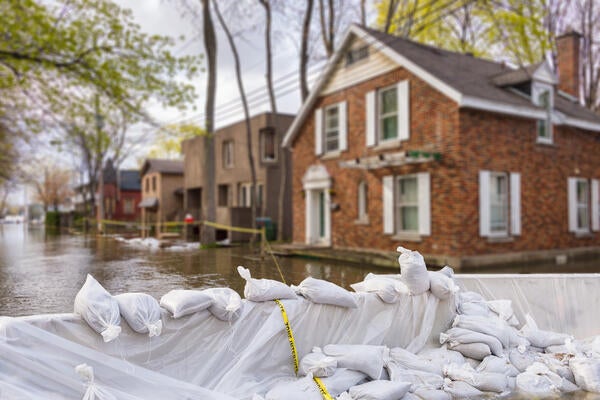
Experts release key recommendations to address climate cost of tourism
Waterloo professor co-leads the first report to assess the state of tourism climate action

Waterloo professor co-leads the first report to assess the state of tourism climate action
By Media RelationsThe first Tourism and Climate Change Stocktake report has been released by the Tourism Panel on Climate Change (TPCC) timed with the UN COP-28 Climate Conference. Its 24 key findings aim to support policymakers and the tourism industry in accelerating planning and investment toward low-carbon and climate-resilient global tourism.
University of Waterloo climate change and sustainable tourism expert Professor Daniel Scott was the co-lead, along with Professor Susanne Becken of Griffith University in Australia. The TPCC is a network of over 60 leading international tourism and climate experts from over 30 countries.
“In 2023, the world witnessed an extraordinary succession of climate records so that we no longer need to imagine the impacts of climate change on travel and tourism,” Scott said. “Few tourism authorities have focused on the potentially massive impacts of climate hazards and the paradigm shift that will be required in the transition to climate-resilient tourism development.”
The Stocktake report is significant because it is the first of its kind to assess the progress and gaps in the state of tourism climate action worldwide.
“The key findings indicate the entire tourism sector needs to go further and faster to rapidly reduce tourism emissions and accelerate climate resilient tourism development,” Becken said. “The many signs of progress, good practice, and innovation we identified need to be rapidly scaled for tourism to get back on track for its 2030 and 2050 climate targets.”
A worldwide course change is required across travel and tourism. “Tourism is omitted from national climate change policy in many countries where tourism represents a high proportion of the economy. Tourism can be an important force for climate action to protect destinations and livelihoods that depend on the tourism economy,” said Scott.
“The future of global tourism remains ours to decide. Transformational change in governance, policy and finance alignment, and travel choices are the collective responsibility of the global tourism community. There can be no sustainable tourism if we fail on climate.”
Some of the key findings include:
The report goes on to share that governments and international development assistance continue to invest in tourism infrastructure that is climate-vulnerable and linked to high GHG emission intensity, while training in industry and tourism education programs remains very limited.
Contributing authors from the University of Waterloo also included Associate Professor Michelle Rutty.
The Tourism and Climate Change Stocktake was released on Monday, 11 December and is available at www.tpcc.info.

Read more
An ambitious research collaboration with Habitat for Humanity is reimagining home ownership across Waterloo Region and Canada

Read more
Twenty-six researchers receive federal funding to drive discovery, innovation and research infrastructure development

Read more
Waterloo researchers propose solution to help communities escape the costly cycle of flood damage and rebuilding
The University of Waterloo acknowledges that much of our work takes place on the traditional territory of the Neutral, Anishinaabeg, and Haudenosaunee peoples. Our main campus is situated on the Haldimand Tract, the land granted to the Six Nations that includes six miles on each side of the Grand River. Our active work toward reconciliation takes place across our campuses through research, learning, teaching, and community building, and is co-ordinated within the Office of Indigenous Relations.